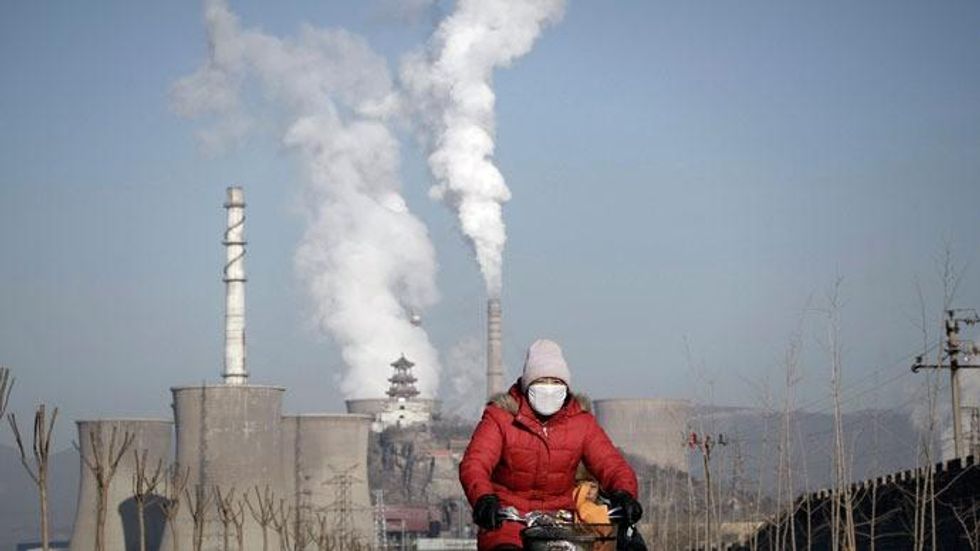The global politics that have hampered efforts to create a binding international agreement to limit greenhouse gas emissions may have taken a positive turn as reports suggest the Chinese government is preparing to place a firm cap on the amount of carbon
pollution it generates each year.
According to various sources, China's National Development and Reform Council (NDRC)--which has the authority to propose new energy policies--has sent an official recommendation to the nation's State Council calling for a limit on the amount of carbon emissions to be put in place by 2016.
The details of the complete plan are not clear, but indications are that officials on the State Council will be "supportive of the plan."
"Such an important move should encourage all countries, and particularly the other large emitters such as the United States, to take stronger action on climate change" - Lord Stern, Grantham Research Institute on Climate Change, LSE
As The Independent notes, the development "marks a dramatic change in China's approach to climate change that experts say will make countries around the world more likely to agree to stringent cuts to their carbon emissions in a co-ordinated effort to tackle global warming."
China is the world's largest emitter of carbon dioxide, the most common greenhouse gas. The US comes in second overall, but outperforms China by out-polluting its Asian rival-cum-trading partner on a strictly per capita basis.
Taken together, the two nations have shared the blame for hampering past efforts at a global agreement. However, it now it looks like China will assume the leadership role as the US continues to avoid addressing the ongoing and worsening climate crisis.
As Responding to Climate Change (RTCC) website reports:
China and the USA have long pointed at each other's lack of climate action as justification for their own slow progress.
The USA refused to ratify the Kyoto Protocol deal on emission reductions citing the treaty's failure to include big emitters in the developing world such as China and India.
The announcement will provide further encouragement for the hopes of a new universal deal on emission reductions through the UN, scheduled to be agreed by 2015 and enforced in 2020.
According to negotiators at the talks that have spoken to RTCC, the USA has been more constructive during closed door meetings since President Obama's re-election but it's main policy positions have not changed.
The US is pushing for the countries to set their own emission reduction targets for the 2015 deal, critics say this will lead to low levels of ambition.
Though China's plan still needs official approval and will be met with skepticism by those who recognize China's growing use of coal, tar sands and other fossil fuels, observers of the international political landscape still say the move is an important and significant step in the right direction.
RT reports:
Previously, the Chinese government had sought to cut carbon dioxide emissions by meeting intensity targets linked to their rate of economic growth - the amount of the greenhouse gas produced per dollar of economic output. However, this measure still left significant room for emissions to increase, and the NDRC has predicted that on its current path Chinese emissions will peak in 2025.
China's rampant economic growth in recent years has made it the world's largest emitter of carbon dioxide, surpassing the US. Currently, the Asian country is responsible for a quarter of all greenhouse gas produced, followed by North America, which produces 17.6 percent of the global total.
But Lord Stern, chair of the Grantham Research Institute on Climate Change at the London School of Economics, in an interview with The Independent said the development "is very exciting news."
"Such an important move should encourage all countries, and particularly the other large emitters such as the United States, to take stronger action on climate change. And it improves the prospects for a strong international treaty being agreed at the United Nations climate change summit in 2015," he said.
And Doug Parr, a top scientist for Greenpeace, added: "This is a big shift in China's position and should unblock the standoff between the US and China in the global climate change negotiations. Without an agreement between these two major players it is hard to see how an agreement can be reached in 2015."
___________________________________________________




